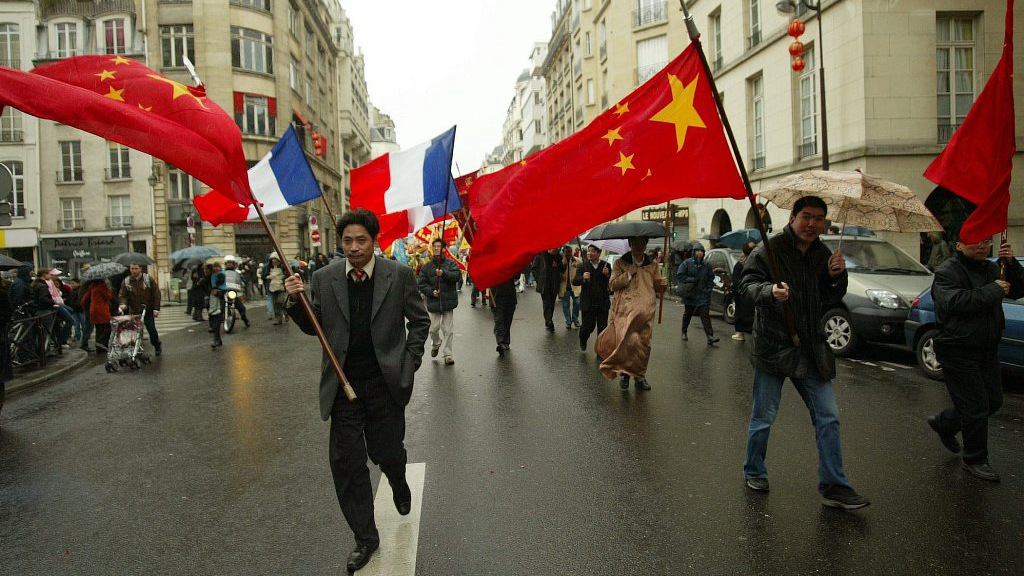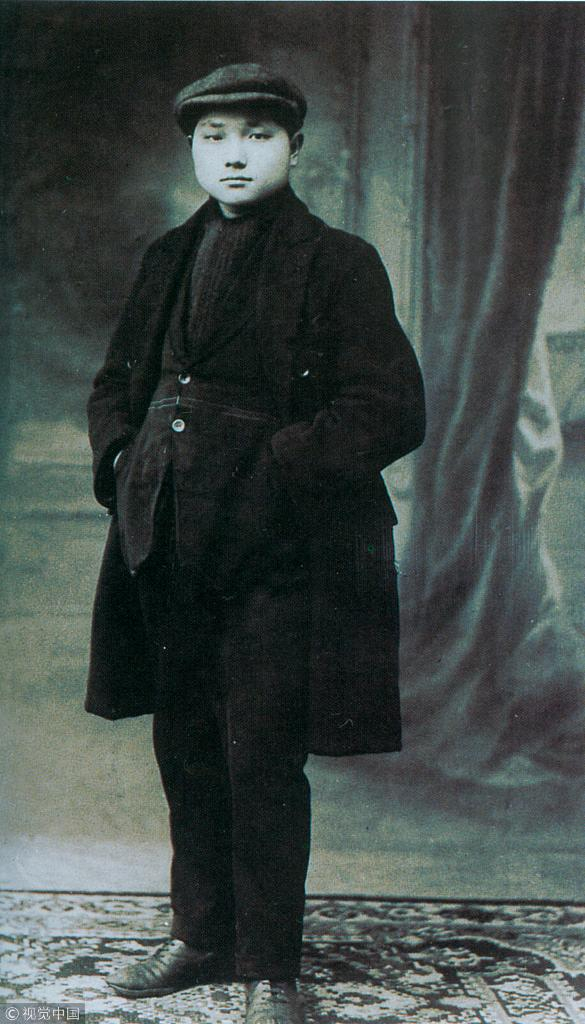
Opinion
15:08, 01-Apr-2019
A new republic born out of tofu
Updated
22:17, 01-Apr-2019
John Gong

Editor's note: Dr. John Gong is a research fellow at Charhar Institute and professor at the University of International Business and Economics. The article reflects the author's views and not necessarily those of CGTN.
This year marks the 100th anniversary of what is called in French “Mouvement Travail Etudes,” which in English means the work-study movement facilitated by the French government. Paris of the nineteen twenties was the epicenter of the world political and economic activities. It is also the embryonic place of all kinds of leftist philosophies at that time such as Marxism, anarchism, and syndicalism.
No wonder that many middle-class Chinese students traveled to France during that time to pursue a dream of science and technology. Among them were the earliest leaders of the Communist Party of China (CPC) and the People's Republic of China (PRC), including Zhou Enlai, a famed revolutionary and PRC's first premier, Deng Xiaoping, who is best known for his role in initiating China's reform and opening-up drive, and Chen Yi, an established military leader. One of the earliest eight CPC local branches was established in Paris. It is no exaggeration to say that without the “Mouvement Travail Etudes,” the new China under the CPC leadership might not be brought into being.
In the beginning, there was Tofu. In 1908 a high-class man by the name of Li Shizeng opened a company by the name of l'usine Caséo-Sojaïne in the western suburb of Paris to produce Tofu for the French market. He brought in 120 Chinese men from his hometown-the city of Baoding in central China, who worked in his factory during the day and studied French and other modern engineering subjects during the night. Li called these Chinese worker-students originally “ignorant” and “superstitious” and aspired to turn them into knowledgeable and moral citizens who on their return home would become models for a new China.

Deng Xiaoping in France in 1920. /VCG Photo
Deng Xiaoping in France in 1920. /VCG Photo
The program turned out to be such a great success both financially for Li and career-wise for his workers that Li decided to replicate this model on a much larger scale. He and his business partners started to open preparatory schools in several Chinese cities to recruit students to go to France. Selected students would study French and other professional skills for a year before being put on ships bound for Marseille. Many students heeded the call. At its height between 1919 and 1920, about 2,000 students went to France, many of whom played critical roles in the subsequent revolution in China.
Li Shizeng probably had never imagined that his little Tofu factory would cast such a profound impact on China's modern history.
Today as we memorialize the “Mouvement Travail Etudes,” two things we should particularly memorialize. One is the special Franco-Chinese friendship that is deeply rooted in history, and the second is Li Shizeng's ground-breaking contribution that started the momentous episode of history in the first place, despite that he held different political opinions from those of the students he once supported.
What Chairman Mao said of Li Shizeng during a tour trip to Li's hometown summarized it best. In Mao's opinion, Li is a marvelous educator. He cultivated a generation of talents during the ‘Mouvement Travail Etudes,' which played a pivotal role in the founding of our country. Without him, there would be no new China.
(Cover photo: People with Chinese background celebrate the spring festival in Paris, France, February 13, 2005. /VCG Photo)
(If you want to contribute and have specific expertise, please contact us at opinions@cgtn.com.)

SITEMAP
Copyright © 2018 CGTN. Beijing ICP prepared NO.16065310-3
Copyright © 2018 CGTN. Beijing ICP prepared NO.16065310-3